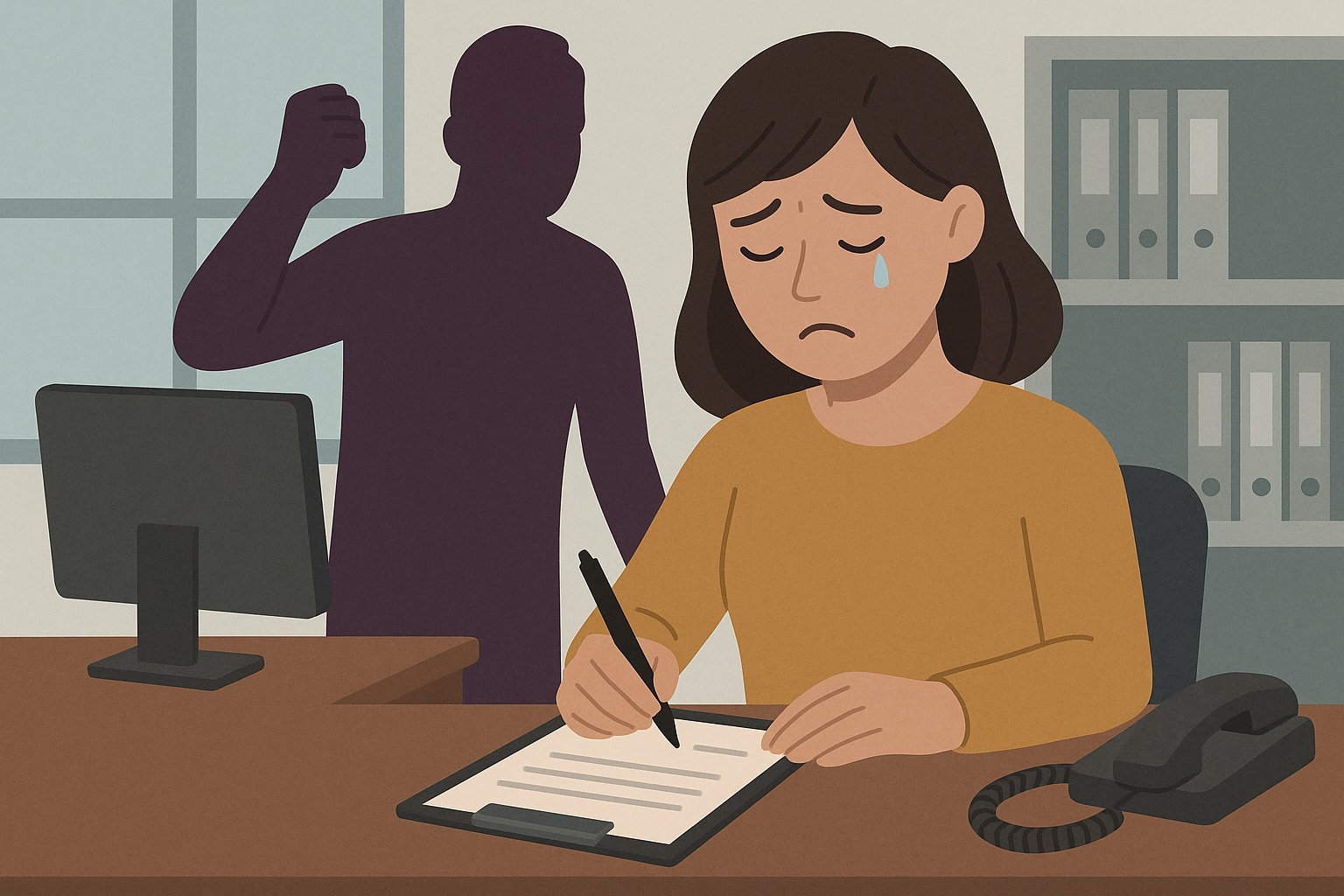Employment Rights: Taking Domestic Violence Leave Under Ontario’s ESA
Did you know Ontario's Employment Standards Act (ESA) gives employees the right to take job-protected, paid leave if they or their child have experienced domestic or sexual violence? This guide explains who is eligible, how much time you can take, and your rights when notifying your employer.

Experiencing domestic or sexual violence is a traumatic event, and the process of healing, seeking help, and ensuring your safety takes time and energy. It often requires taking time away from work for appointments, court dates, or relocation. Recognizing this, Ontario law provides a critical protection for employees: Domestic or Sexual Violence Leave.
This right, enshrined in the Employment Standards Act, 2000 (ESA), ensures that you can take the time you need without the fear of losing your job. Here’s what you need to know about your rights.
What is Domestic or Sexual Violence Leave?
This is a job-protected leave of absence. Your employer cannot fire, suspend, penalize, or otherwise retaliate against you for taking this leave. It is broken down into two separate entitlements per calendar year.
Who is Eligible for This Leave?
To be eligible, you must have been employed by your employer for at least 13 consecutive weeks. The leave can be taken if you or your child has experienced or been threatened with domestic or sexual violence.
How Much Leave Can I Take?
You have two separate entitlements each calendar year:
- Up to 10 Days of Leave (First 5 Days Paid) You are entitled to take up to 10 individual days of leave. The first five days of this leave taken in a calendar year must be paid at your regular rate of pay. The next five days are unpaid. These days do not have to be taken consecutively.
- Up to 15 Weeks of Leave (Unpaid) In addition to the 10 days, you are also entitled to take a longer leave of up to 15 weeks. This entire 15-week leave is unpaid. This is meant for situations that require a more extended period away from work.
These are two distinct entitlements. For example, you could take 7 individual days off for various appointments and later take a 10-week block of leave in the same year.
What Can This Leave Be Used For?
The ESA specifies that the leave can be taken for any of the following purposes for yourself or your child:
- To seek medical attention for a physical or psychological injury.
- To obtain services from a victim services organization (e.g., a shelter or community agency).
- To get psychological or other professional counselling.
- To relocate temporarily or permanently.
- To seek legal or law enforcement assistance, including preparing for or participating in any court proceedings.
How Do I Tell My Employer?
Navigating this conversation can be stressful, but the law sets out clear guidelines.
- Giving Notice: You must inform your employer that you are taking the leave before you take it, or if that’s not possible, as soon as you can after starting the leave. The notice can be given verbally or in writing. You do not need to provide specific, graphic details of the violence.
- Providing Proof: Your employer is allowed to ask for "evidence reasonable in the circumstances" that you are eligible for the leave. This does not mean you must provide a police report. Reasonable evidence could include:
- A note from a doctor, counsellor, or psychologist.
- A letter from a victim services organization.
- A court document.
Your employer is legally obligated to keep any information you provide, including the fact that you are taking the leave, confidential.
Your Key Rights Summarized
- Job Protection: You cannot be fired or punished for taking this leave.
- Confidentiality: Your employer must protect your privacy.
- Right to Reinstatement: When your leave is over, you have the right to the same job you had before, or a comparable one if your old position no longer exists.
- Paid Time Off: You are entitled to be paid for the first five days of leave taken in a year.
What If My Employer Denies My Request?
If your employer refuses to grant you this leave or retaliates against you for taking it, they are breaking the law. You can seek help from:
- The Ministry of Labour: You can file an employment standards claim online. The Ministry is responsible for enforcing the ESA.
- Workers' Action Centre: Provides free and confidential advice on workplace rights for non-unionized workers in Ontario.
- Your Local Community Legal Clinic: Offers free legal advice on employment matters for low-income residents.
Your safety and well-being are paramount. These laws exist to give you the time and space to prioritize them without risking your livelihood.
